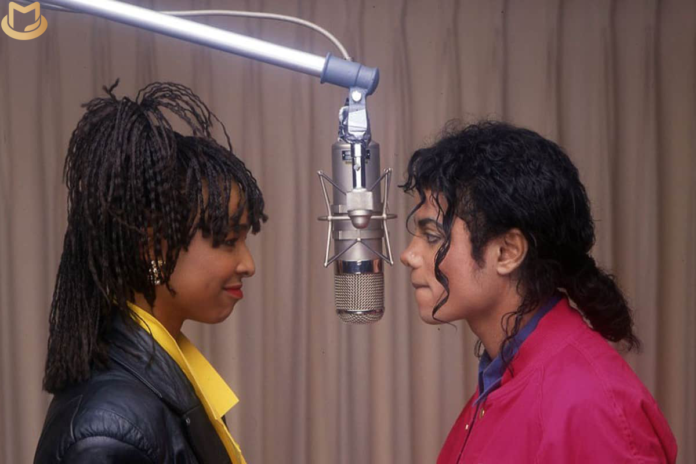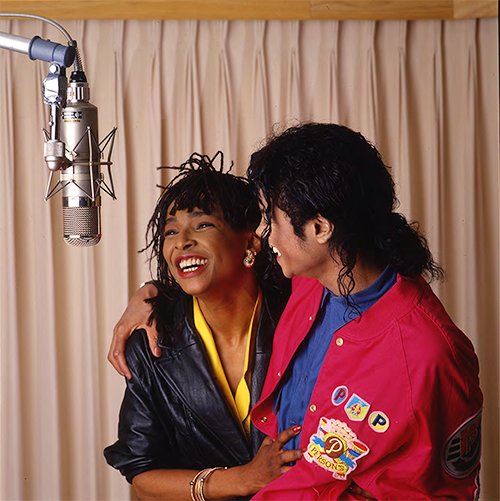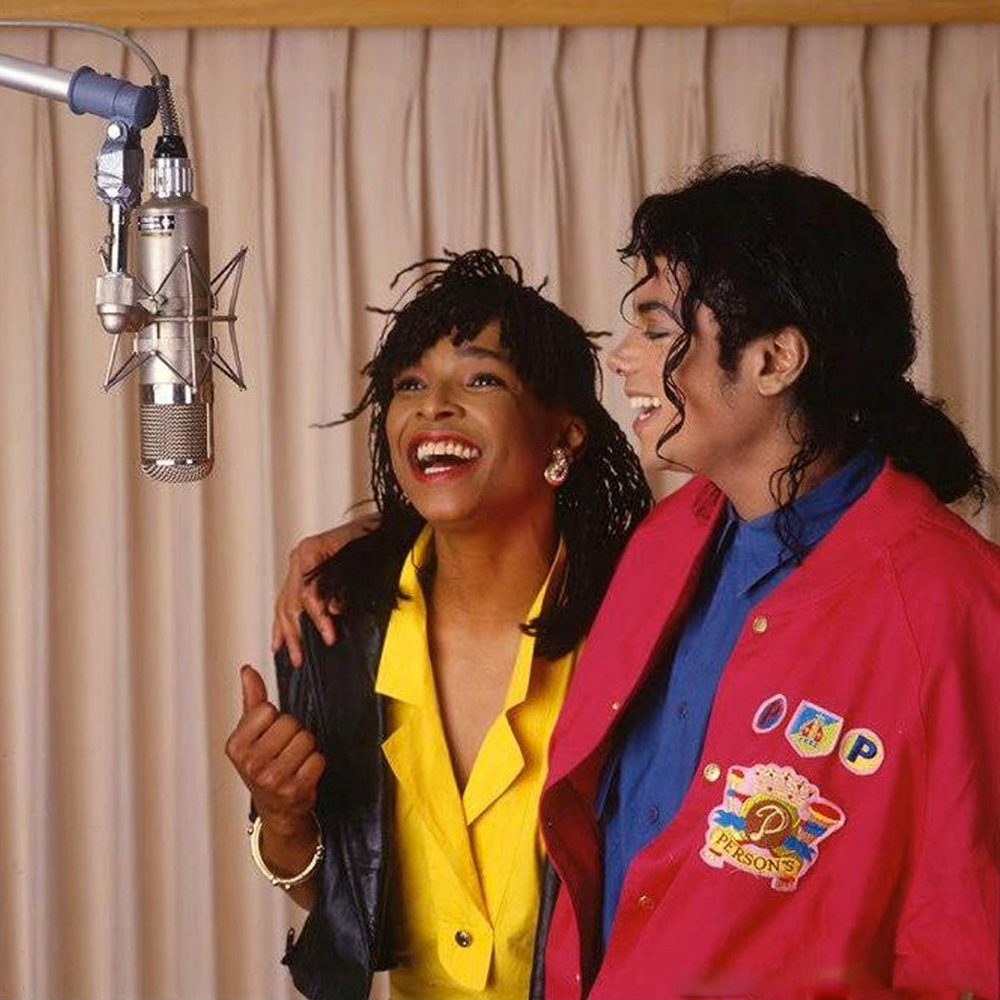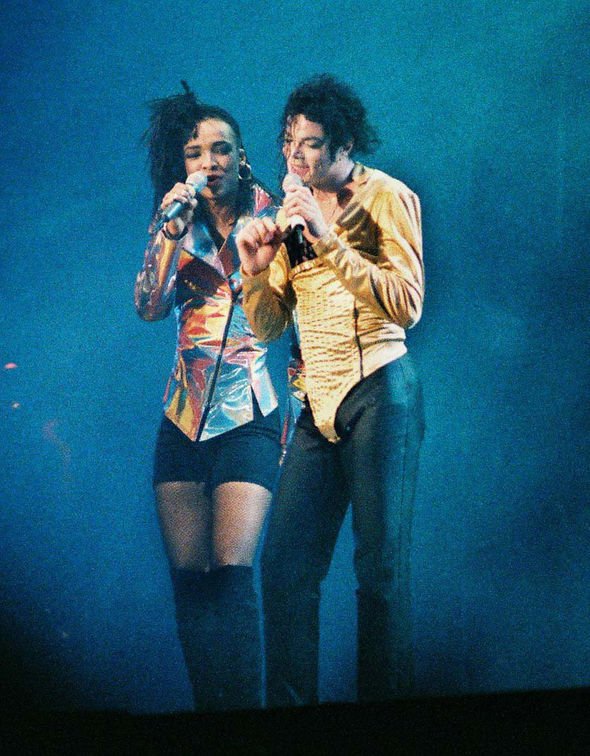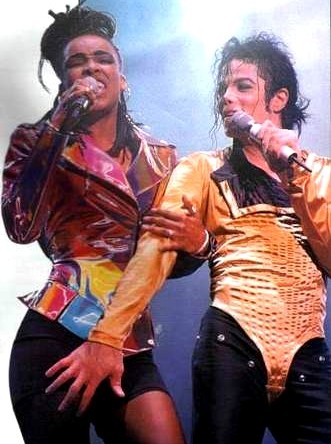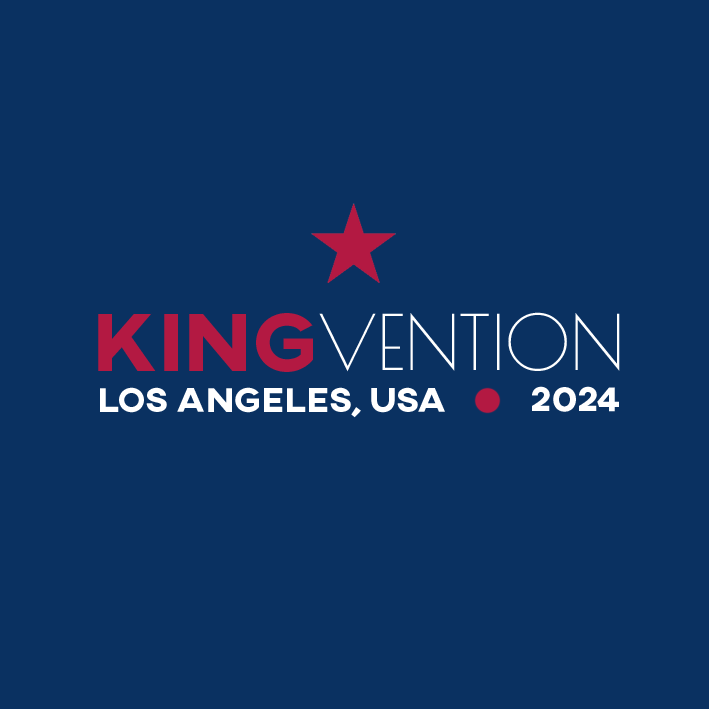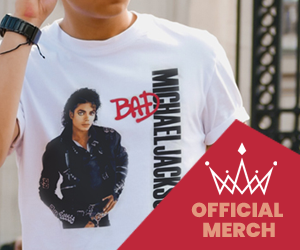We all know Siedah Garrett! In a recent interview for the Rolling Stones Magazine, she speaks about working with Madonna, Quincy Jones and Diana Ross. She recently worked with Ms Ross on her new album by writing the song “The Answer’s Always Love”.
While the famous song writer speaks about her career and all the collaborations she did so far, Garrett also speaks about Michael Jackson and working together. And here what she has to say about Michael:
How did your Michael Jackson chapter start?
That started with a meeting with Quincy Jones where he asked his West Coast songwriters to come up with a song to finish what we now know as the Bad album.
The reason why I was even in Quincy Jones’ orbit is because he had this cattle call of auditions. He was looking to create a group like Manhattan Transfer or the Fifth Dimension. He wanted a male/female vocal group. He had these cattle calls in Hollywood.
The night before the audition I got a phone call. It wasn’t from my dear friend in Black Velvet and Satin Soul. She didn’t call me. She was going to the audition herself. The person that called me and told me about the auditions was her boyfriend. He was like, “She’s going to these auditions tomorrow. Maybe you should go too.”
I said, “Quincy Jones? OK.” I didn’t know Quincy from the man in the moon. He said, “You need to go. It’s a big thing.” I said, “What time is it?” He said, “I don’t know.” But he gave me the address. I didn’t know what time, so I showed up at 7 a.m. The real auditions didn’t begin until noon. I was third in line. By the time that noon rolled around, the line was around the block.
We all go in and there’s a table full of clipboards. You write down the date and time you want to audition and you come back. I was there that day. I wanted to do my audition that day. I was ready that day. I did it that day.
Because I did it that day, Quincy told me years later that I set the bar. Everyone who came after me had to be as good as me, or better than me. For the next nine months, we’d get these letters. “Congratulations. You’re one of 500 people considered for the Quincy Jones project. Congratulations, you’re one of 250. Congratulations, 100 … 50 … 25 … 20 … 15 … 10 … 5 … 4.”
It was me and three dudes. Decca offered a writing deal and a publishing deal as a package. I found out this publishing deal said I had to write 12 songs a year, of which Quincy’s company owned 100 percent of the publishing. I am not a musician. Everything I do is a co-write. If we have to come up with 12 songs a year, that meant I had to come up with 24 songs.
And don’t let three people be in the room, because then it’s even more. I said, “I don’t want this writing deal. I’m not a writer and I don’t want to be on the wrong side of a publishing contract with Quincy Jones, so no.” The boys were like, “Fine.” They took a meeting with Quincy and signed. Quincy said, “Where is Siedah’s name?” They said, “She doesn’t want the publishing part. She just wants the recording-artist part.”
Quincy pushed the paper back to them and said, “You either all sign, or nobody signs.” Next thing I know, “[Imitates loud banging sound on a door and loud, angry voice] Siedah! Bitch, you better sign this contract!”
When three large Black men tell you to sign, you tend to sign. I signed and then I only wrote poems, so I set about the business of learning the craft of songwriting. Because I did everybody’s friggin’ demos during that time, I learned a lot about how songs are crafted, how they are arranged, how the different instrumentation creates different moods and vibes.
I learned so much singing demos for everybody, that it helped me as a songwriter. I’d be like, “Oh, I remember in this song how there was a bridge here … I like how this song started with the chorus … this song started with an intro and right into the first verse.” I learned so much. That whole experience was such a valuable lesson to me. I didn’t realize how much it helped me grow as a songwriter until much later.
That led to the Bad sessions?
Yeah. Then we jump to when Quincy was looking for another song. I took some notes at that meeting, and then I went to Glen Ballard’s, to whom I had only sung on his demos. I loved his songwriting so much. I said to him, “I don’t know how you’re going to feel about this, but Quincy is looking for another song for Michael Jackson. Do you want to try and write a song?” I had never written with him. I had only sung on demos. He was like, “Sure.” I came to his studio and I sat on the floor and I opened my lyric book.
Cut to two years before this day. I’m writing with jazz keyboard player John Beasley. He’s amazing. We were writing this song and the phone rings and he takes the call instead of letting the phone ring, and he begins this banal conversation with I-don’t-know-who. I remember flipping through my lyric book and going, “He is not taking a phone call while we’re trying to write this song.”
I was kind of angry and I’m flipping through my book. I heard him say, “The man? What man? Oh. The man in the mirror.”
Cut to two years later. I’m sitting on Glen’s floor. He says, “What kind of song does Quincy want?” I said, “I don’t know.” He then says, “Let’s see what happens.” And he turns on the keyboard. To get a sound on the keyboard, he starts playing these chords. [Imitates the opening to “Man in the Mirror] And I’m flipping through this lyric book and the phrase virtually popped off the page.
Every time I tell this story, I get goosebumps since I re-live that moment. It was awesome! I started singing the first verse to “Man in the Mirror.” I couldn’t write fast enough. I was like, “Hold up, Glen. Hold up.” I was trying to get it all out. My hands were just moving. In like 10 or 12 minutes, we had the first verse and the first chorus of “Man in the Mirror.”
It was a Wednesday evening. Glen said, “You go home. You finish the second verse. I’ll finish the track. We’ll demo the song on Friday.” I said, “Great.” We got back on Friday afternoon. Finished the song on Friday evening. I then took the song to Quincy’s house.
What happened from there?
He called me two hours later. I was at my house making dinner for myself. The phone rang. I picked up the phone and it was Quincy Jones. He said, “Sied. This is the best song I’ve heard in 10 years.” That’s an exact quote. I had tears in my eyes. And then he said, “But …” I didn’t want to hear shit. I just wanted to live in “best song in 10 years.”
“But Michael and I have been in the studio for two and a half years, and we’ve yet to record a song that Michael didn’t write. I don’t know, Sied. Don’t worry, though. If Michael Jackson doesn’t do it on his record, I’ll have James Ingram do it on my record.”
Now I love James Ingram as much as the next person. But Michael Jackson … James Ingram … Michael Jackson … James Ingram. Next time I heard from Quincy was three or four years later. He goes, “We’re in the studio recording your song.” I’m like, “Yes!” Then he said, “But Michael said the chorus is too short. We need some more lyrics for the chorus. Hold on …” And then I hear, “Hello.”
Quincy Jones put Michael friggin’ Jackson on the phone! I don’t know about you, but when I was coming up, Michael Jackson was my husband. My cousin had Tito. Another had Jermaine. Michael was my husband.
In my little brain, I’m on the phone with my husband! I had to just rein it in. I didn’t want to be fan girl. I didn’t want to be what I was. I didn’t want to let him hear, “Oh, my God, Michael. I love you so much. You have no idea. You’re my husband!” I didn’t want any of that to be heard in my voice. He said, “Hello,” and I went straight-up hotel operator. “How can I help you?”
The first thing he said to me was, “I love this song.” I said, “Thanks man.” The second thing Michael Jackson said to me was, “And I love your voice.” Oh, my God! Ooohh!! I was floating. I was on air. Then he said something about the second verse, whatever.
Even in my naiveté, I knew I didn’t want Michael to have to worry about coming up with new lyrics for the second half of this chorus. What I did was, I created six different stanzas for him to choose from. The one he picked as, “You gotta get it right while you have the time because when you close your heart, you close your mind.”
I wish I still had the list of the other five that were not chosen, but I haven’t been able to find that thus far. But I know it exists somewhere.
Did they call you into the studio after that?
Yeah. Quincy said, “This song is in a key that’s a little too high for Michael, so I need you to sing it in a lower key.” I was like, “Great.” I go down to the studio and I’m expecting to sing this demo in a lower key and then go about my business for the rest of my day.
I walk into the studio and it’s [engineer] Bruce Swedien, Quincy Jones, and my husband! Oh, my God. But I’m still not fan girl. I’m still going to be cool. And then Michael introduces himself like he needs an introduction. It was crazy.
I talked to him about what I needed for the song, and then Quincy tells me to go in there and do it. I start walking towards the vocal booth, and Michael stands up and grabs this humongous beatbox-looking video camera, and starts filming as we’re walking into this room. I’m looking behind me going, “What are you doing?” He goes, “I need to film you.” I said, “Why?” And then he said something that melts my heart to this day. He said, “Because I want to sing it like you.” Oh! No he didn’t just say that!
He follows me into his room and films me singing “Man in the Mirror” in a lower key. And now I have never, ever told this story, ever. And then Spike Lee’s documentary came out, Bad 25, where you actually have footage of Michael filming me. You can see in the mirror in the studio. I’m going into the studio to sing “Man in the Mirror” with the man in the mirror filming me to sing this song. It was just too many points of connection. It was insane. It was like energy pinging and popping off the walls. I’m telling you. It was insane.
How did you wind up on “I Just Can’t Stop Loving You”?
Well, I’m in the studio with Quincy and Michael just talking. I thought we were going to keep singing “Man in the Mirror.” There was a lot of background vocals that needed yet to be done. I thought Quincy was calling me back two days after that to finish the session. I walk in thinking there was going to be a choir like there was before. And it’s just the three of them.
I’m in the studio and I’m thinking any minute we’ll start “Man in the Mirror” and the choir is running late. But they start playing this other song, and Quincy calls over his shoulder, “You like this song, Sied?” I’m like, “Yeah.” I was actually knitting. He said, “Can you sing it?” I said, “Yeah, I can sing it.” He says, “Go on in the studio.”
I get up and I’m walking in the studio and I didn’t realize Michael was following me in the booth. I’m looking out and I see two music stands with two sheets of music and two lyric sheets that say “I Just Can’t Stop Loving You.” It says “First Verse Michael. Second Verse Siedah. Chorus Michael.”
It was in that moment that I realized I’m duetting with the fuckin’ King of Pop! What?! It was insane. Oh, my God. My life at that time was insane. It was just one incredible thing after another. It was just too heavy.
Then you sang it later with him in Spanish.
We sang that song in English, Spanish, and French. What? Yes! It was awesome. I spent more time in the studio recording those songs than “Man in the Mirror” because on “Man in the Mirror,” the whole song is just me and him until the choir comes in at the end.
We did a lot of recording at that time, and I spent a couple of weeks with him. That was the most connected that I ever felt with him, even though I toured with him for a year and a half.
That was for Dangerous, though. Why weren’t you on the Bad tour?
Michael asked me to go on the Bad tour. I was like, “Yeah, I think I would love that.” And then I started talking to Quincy Jones and Rod Temperton and to Warner Chappell and Warner Bros. Music. They said, “You’ve got ‘Man in the Mirror’ coming out. You’ve got this duet coming out. You really should do your own record.”
I had been rehearsing for the Bad tour for two weeks when I pulled out and did this record. In my pulling out, the person that took my place was Sheryl Crow.
Tell me about writing “Keep the Faith” for Dangerous.
I think Michael said something to Glen [Ballard] and I like, “I’d like you to write a song like ‘Man in the Mirror,’ but a little edgier.” I don’t remember his exact words, but Glen and I got together and wrote the verses and choruses to “Keep the Faith” and then we asked Michael to write the bridge. All I wanted was a co-write with Michael friggin’ Jackson. We knew that if we invited Michael to be part of this song, our chances would be better at having the song actually make the album, and it did.
Tell me about writing “Keep the Faith” for Dangerous.
I think Michael said something to Glen [Ballard] and I like, “I’d like you to write a song like ‘Man in the Mirror,’ but a little edgier.” I don’t remember his exact words, but Glen and I got together and wrote the verses and choruses to “Keep the Faith” and then we asked Michael to write the bridge. All I wanted was a co-write with Michael friggin’ Jackson. We knew that if we invited Michael to be part of this song, our chances would be better at having the song actually make the album, and it did.
What was it like being on the road with Michael?
Being on the road with Michael Jackson was like touring with the baby Jesus. All his legions of fans and people that just can see a picture of him or hear his voice and know he’s in a hotel just start weeping and crying and professing their love.
We hated it when we were in the same hotel as Michael. There were three layers of hotels. The A hotels were for Michael and his guests. The B hotels were for the band and the singers. The C hotels were for the crew.
There were places in Europe where there were no B hotels. We had to stay in the same hotel as Michael. Those were the days we hated because we didn’t get any sleep. They would hold sessions outside the hotel where they would sing songs and light candles. They’d chant, “We love you, Michael!” It was hideous. We only enjoyed the times when we were away from Michael because his legions of fans were relentless.
We were in Spain once and we had an off day. I was like, “Yes! We’re going to go shopping. I can get leather and shoes! Let’s go!” I went downstairs with a bandmate and we exchanged our dollars for pesetas. I’m at the front desk, and outside the hotel they’ve roped off the pathway to lead us to the door because his fans were like a sea. They had a red velvet rope to part the sea so that the hotel guests could come and go freely.
We go outside the hotel and I see all these fans. I’m talking like, “We’re going to get shoes, and leather, and it’s going to be great!” I’m walking and from behind me I hear, “Hey! That’s Siedah Garrett!” I turn around and everybody starts moving towards me. We take off and start running. We’re running for our lives and they’re chasing us. I look over and go, “What are they going to do when they catch us?”
We ran for blocks. Somebody must have said, “Hey, what if Michael comes out while we’re chasing Siedah Garrett?” So they peel off and go back to the hotel. That’s what Michael’s life was like every friggin’ day.
What was it like to watch him dance from so close every night?
It was truly awesome to watch him work, to know his rehearsal process and then to watch him take that onstage and just do it to perfection. He was so humble in the fact that if you’re the best at what you do, like Fred Astaire or James Brown, all these people that he admired and respected and sort of took what they did and put his little spin on it … those are the people that he respected the most.
No matter who they were, he let them know, and he let me know, that he felt he had as much to learn from me as I did from him. That’s the ideology he took into everything he did, from his dance to his vocals to his writing. He’s one of the most under-honored songwriters that I’ve ever met.
You played halftime at the Super Bowl.
Yes!
He stood still for two full minutes on live TV while the entire country watched. What was that like?
That was ridiculous. When he was on, he was really, really on. He put on a good show every night. But there were some nights where we had to stand and applaud. We were like, “Damn!” He is the only person that I have ever known of or heard of that can spin eight full revolutions on his heel. What?! We watched him do it. Somebody filmed it and they slowed it down. It was eight full revolutions. Crazy. There were some nights where even we had to give it up, and we saw him every night.
Did you see him much offstage?
No. The most time I spent with him was in the studio [during the Bad sessions]. Nobody saw him on the road. He was very to himself. When we had off days, he would go to children’s hospitals and orphanages and we wouldn’t know where he was or what he was doing until we read it in the paper the next day. By that point, we were getting ready to go to the next place.
You reconnected with Michael before he died.
I did. Somebody from American Idol was singing “Man in the Mirror” and they called me to see if I wanted to watch the show. And so I did. I was in the green room and I saw this woman I had only seen one other time in my life. It was at Neverland Ranch. It was Michael’s nanny. She goes, “Oh, Siedah. I was just on the phone with Michael. Let me get him.” I was like, “Oh, get him! Put him on the phone.” I knew I had to get back in the TV studio. But I said, “When you do, tell him, ‘I miss his Black ass.’ “
She was laughing hysterically and said she would. The next break, I go back out and she goes, “Here, here. I have Michael on the phone.”
I get on the phone and the first thing I say is, “Dude, I miss your Black ass.” He says, “You so crazy!” I say, “You know I’ve been nominated for an Oscar.?” He goes, “I know! I heard about that.” I said, “And I heard you’re going on the road to London.” He goes, “Yeah. It’s going to be a big tour. It’s going to be great. It’ll be so much fun.” I said, “I wanna go!” He goes, “You wanna go on tour?” I say, “Yes!” He said, “OK.”
I went to these auditions to see if I blended with the other singers, or whatever. The next thing I know, there is no tour.
The news must have been shocking.
You have no idea. The people that know I know him, I was absorbing all of their grief for him, too. My phone wouldn’t stop ringing. “Channel 2, Channel 4, Channel 11 … Eyewitness News. Entertainment Tonight.” All these shows all wanted the scoop, they all wanted some dirt on Michael. I was invited to a nondenominational church in Los Angeles. The choir director was a friend of mine. She said, “Michael died on Thursday. We’re doing a thing for him on Sunday. The choir learned ‘Man in the Mirror.’ Would you come and sing?” I said, “Yes.”
I get onstage. The first thing I say is, “I’ve been bombarded with media. All these people want to know if I had any dirt on Michael. I have nothing for them. I only know the man and his music. That’s it.” They didn’t want to hear shit from me. They didn’t want that information. Everyone knows that. They wanted dirt, so I was useless for them.
It must be hard for you now after all these allegations have come out. They have nothing to do with you or with his music, but they’ve still turned off a lot of people.
They have nothing to do with the music, and his fans understand that. They get that.
When Michael and I did this duet, it felt to me like a love song. It was a love song that he was singing to me. When he passed so suddenly, I realize that I’d never expressed to him my love for him. So I wrote a tribute song to him called “Keep On Loving You.” I did a little video for it. When I look back on it, it makes me cry [because of] the state I was in when I wrote it, and I never got a chance to let him know how much he impacted my life. I’m sure he knew, but I’d never said anything about it to him.
You’re obviously a big supporter, so is it hard to see all of controversy that swirls around him now?
Yeah. It’s just bad all the way around. It taints his amazing musical legacy. It’s a stain. It’s unfortunate.
Full interview HERE
Siedah was also at Kingvention, the European Michael Jackson Convention in London in 2019 and here a short passage of her live interview:


